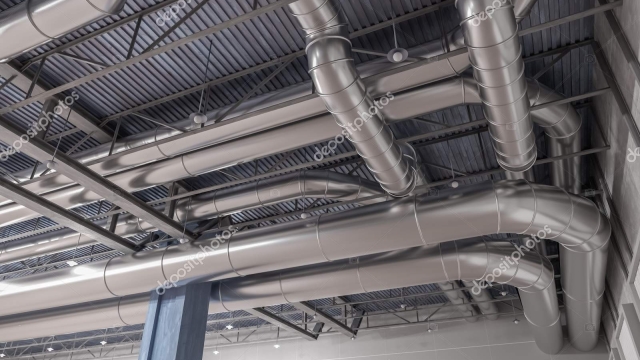
Welcome to the comprehensive guide on mastering the art of HVAC. HVAC, which stands for heating, ventilation, and air conditioning, plays a crucial role in providing comfort and maintaining ideal indoor environments in homes, buildings, and various spaces. Understanding the principles and practices of HVAC is essential for proper maintenance, energy efficiency, and creating a healthy living or working environment. In this guide, we will delve into the fundamentals of HVAC systems, explore key components, discuss maintenance tips, and provide insights to help you navigate the world of HVAC with confidence. Whether you are a homeowner seeking to optimize your HVAC system or a professional looking to enhance your skills, this guide aims to equip you with valuable knowledge to excel in the realm of heating, ventilation, and air conditioning.
Understanding HVAC Basics
HVAC stands for Heating, Ventilation, and Air Conditioning. It is a crucial system in both residential and commercial buildings that helps maintain a comfortable indoor environment. The heating component of HVAC systems typically uses furnaces or boilers to generate warmth during colder seasons.
In addition to heating, ventilation is another key aspect of HVAC systems. Ventilation helps circulate and distribute air throughout a building, ensuring proper airflow and preventing the buildup of pollutants and odors. It also plays a vital role in maintaining indoor air quality.
Lastly, air conditioning is an essential function of HVAC systems, especially in warmer climates. Air conditioning units work by removing heat from indoor spaces, cooling the air before circulating it back into the building. This process helps regulate indoor temperatures and ensures a pleasant environment for occupants.
Choosing the Right HVAC System
Selecting the best HVAC system for your home or office is crucial for ensuring optimal indoor comfort and energy efficiency. Consider the size of your space, climate conditions, and desired features when choosing between central HVAC systems, ductless mini-split systems, or heat pumps.
HVAC service software
Efficiency ratings such as SEER (Seasonal Energy Efficiency Ratio) and HSPF (Heating Seasonal Performance Factor) are important factors to evaluate when comparing different HVAC systems. Higher ratings indicate better energy efficiency, translating to lower utility bills and reduced environmental impact over time.
Don’t forget to assess the maintenance requirements and warranty options of each HVAC system before making a decision. Regular maintenance is key to prolonging the lifespan of your HVAC system and ensuring it operates at peak performance, while a comprehensive warranty can provide you with peace of mind in case of unexpected malfunctions.
Maintaining Your HVAC System
Regular maintenance of your HVAC system is essential to ensure optimal performance and efficiency. Start by changing your air filters every 1 to 3 months, depending on usage. Clean filters help improve air quality and prevent strain on your system.
In addition to filter changes, schedule annual professional inspections and tune-ups for your HVAC system. A certified technician can identify and address any issues before they escalate, prolonging the lifespan of your system and saving you money in the long run.
Keep the area around your outdoor unit clear of debris and plants to ensure proper airflow. Trim any vegetation and remove obstructions to maintain efficient operation. By following these maintenance tips, you can keep your HVAC system running smoothly all year round.
